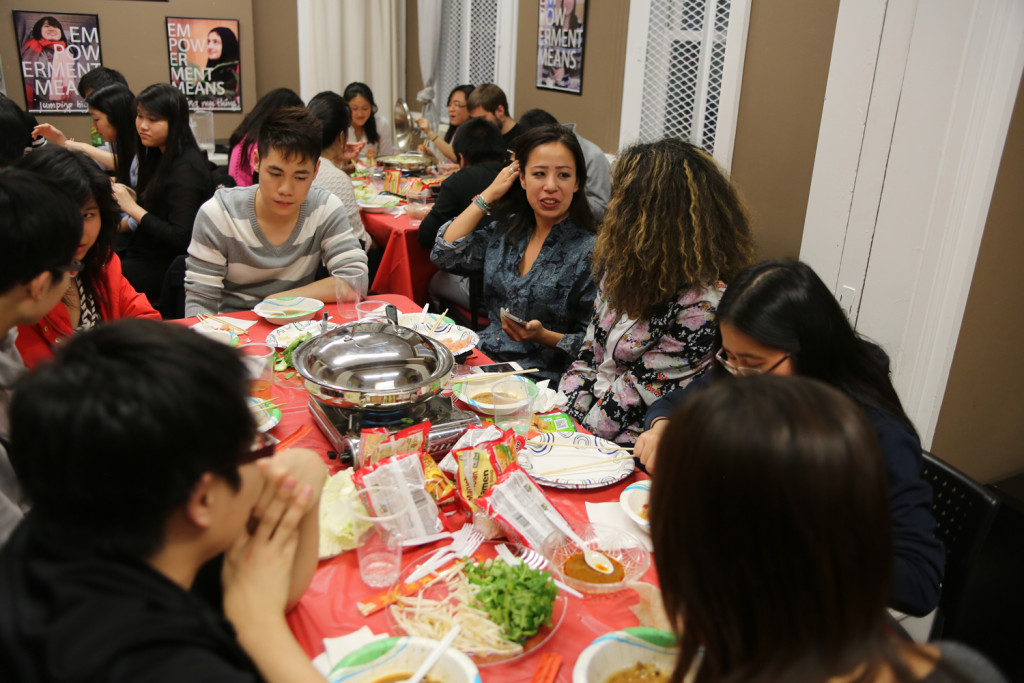A report released to the campus community Tuesday afternoon said the University needs to dedicate more financial and administrative resources to the four cultural centers: the Afro-American Cultural Center, the Asian American Cultural Center, the Native American Cultural Center and La Casa Cultural: Latino Cultural Center.
While the report, compiled by an external review board, concluded that Yale’s cultural centers have an important role in campus life, it also found significant deficiencies in the amount of administrative support provided to them. The report ends the second phase of a three-phase process initiated by the University in the fall of 2014 to assess the status of cultural centers at Yale. The second stage — a review of each cultural center by a team of four outside consultants — culminated with the submission of the report. According to the report’s findings, the financial conditions of the four houses are unequal, and the review board suggested that the University allocate more resources accordingly.
“The financial condition of the centers is uneven,” the report stated. “This situation leads to disparities among the centers and contributes to the feeling that University leadership does not equally value the centers. The consultation revealed the need to give serious attention to the purpose, expectations, budget, facilities and responsibilities of the centers.”
Along with the report, the University sent a frequently asked questions document, which specified that the centers’ budgets will have to expand in order to accommodate an increased number of students as a result of the two new residential colleges.
But AACC Co-Head Coordinator Hiral Doshi ’17 said the centers’ budgets also need to expand to adequately serve the needs of current students.
All prominent figures of cultural life and diversity at other elite universities, the team of consultants visited Yale in November 2014 to analyze the current role of cultural centers at Yale as well as offer suggestions for how Yale can improve these centers, the Tuesday email said. According to student leaders interviewed, this was the first time the cultural centers have been formally reviewed in University history.
The report recommended that Yale make significant efforts to reinforce its commitment to creating a diverse student body. Despite its verbal dedication to diversity, the report found that Yale often falls short in delivering on its promises. According to the report, University faculty and administrators referenced numerous diversity-related initiatives and commitments. However,“to the casual listener [or] observer these initiatives appear disjointed and episodic, which has the effect of diminishing the magnitude of the University’s efforts and message,” the report said.
The report also found many deficiencies in the administration, physical infrastructure and organizational structure of cultural houses, recommending that Yale align its cultural centers with a University-wide diversity agenda. The report eventually concluded that there is much more potential for the centers to enhance the lives of ethnic students than is currently being realized.
Responses to the content of the report were generally positive, and many students said they are hopeful that concrete action would be taken by the administration in the months to come.
“This is exactly what we thought the report would say,” Doshi said. “I think that what we are looking for right now is for the administration to actually do something and take the recommendations of the consultants seriously.”
Diego Fernandez-Pages ’18 said the review was necessary to resolve the cultural centers’ shared administrative and financial problems. However, it is also important for each of the cultural centers to retain its own identity, Fernandez-Pages added.
Interim Director of La Casa Amanda Hernandez recently sent an email to students active in La Casa that suggested possible renovations to the cultural house over Spring Break, La Casa Student Coordinator Benjamin Bartolome ’16 said. These renovations are much needed, Bartolome added, as the basement walls of the La Casa building at 301 Crown St. have put students at risk of electrocution.
“[Cultural] centers are where undergraduate character gets shaped, where campus policies and goals are articulated, and where Yale’s commitment to global excellence is demonstrated,” the report said.








